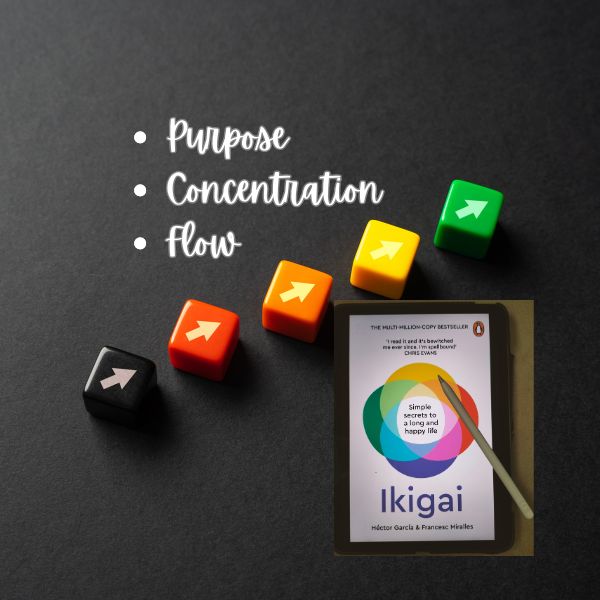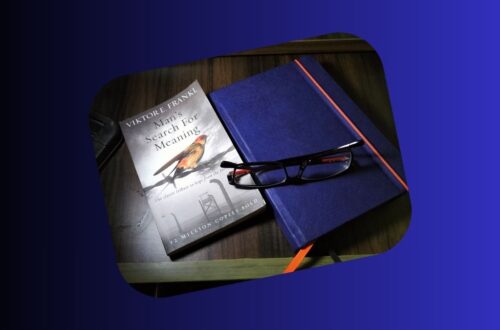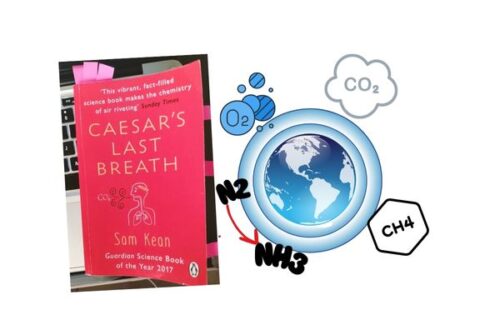
Ikigai & Finding my Ikigai
Book Title: Ikigai
Authors: Héctor García & Francesc Miralles
My Rating (* have a look at my rating scale here): 4/5
I was feeling empty within, asking myself what for this life is all about? Is this life, just living the days off or is there a purpose? What happiness is all about? Despite having a materialistically comfortable life, why am I not happy? Is happiness an illusion? Or is there a way one can feel the real joy within? While looking for the answers, I came across this book. The title itself is intriguing: “Ikigai: The Japanese secret to a long and happy life.” Although not interested in ‘long’ but definitely in a ‘happy’ life, I was curious to know what ‘Ikigai’ was?
What this book is all about?
As authors point out, ‘Ikigai’ loosely translates as ‘meaning of life’ or ‘purpose of life’. The authors have tried to correlate having an Ikigai to longevity. As case studies they have interviewed several Japanese “supercentenarians – people who live to 110 years of age or more” – and centenarians. The common factors have been enlisted, which include having an Ikigai, lifestyle and habits (eating habits, light exercise), community activities and very importantly having friendships.
In the book authors emphasize that each person has an Ikigai. It can be anything, from a simplistic one to take care of one’s family or complex and ambitious one to building an empire.
There are some other other interesting Japanese concepts like ‘“Wabi-sabi (beauty in imperfection) and ichi-go ichi-e (the present moment)” and the concept of “anti-fragility” (getting better in adversity) that are also important in having a contented, happy and peaceful life.
Overall, Ikigai is a lucid read, repetitive at some points, but points well taken as I have found my ikigai….
10 take home messages from this book
- Retire from job; Don’t Retire from life: be active (have an Ikigai)
- Take it slow
- Don’t fill your stomach
- Surround yourself with good friends
- Exercise (not tiring but to keep you active)
- Smile
- Reconnect with nature
- Gratitude
- Live in the moment
- Follow you ikigai
More on Ikigai and my thoughts…
The authors talk about ‘existential crisis’, therapies and meditation methods. There are references to Viktor Frankl, his famous work on ‘logotherapy‘ and his bestseller ‘Man’s search for meaning’. One thing that is relevant to finding your ‘Ikigai’ is to understand what gets you in a ‘Flow’. There are several books on the concept of ‘Flow’-basically defined in the book as “A state in which people are so involved in an activity that nothing else seems to matter, the experience itself is so enjoyable that the people will do it, even at great cost for the sake of doing it.” It is all about focus and concentration.
Here is a very lucid explanation of ‘Flow’ by Swami Sarvapriyananda– a monk of Ramakrishna Order
How to have concentration?
3 key points:
- Task should be slightly out of comfort zone (challenging)
- It should have a clear objective
- One step at a time, one task at a time (keep a timer, 25 min for work and 5 min rest)
It is all about giving full attention to whatever one is doing, and relaxing in between in the right way. Here is more on ‘How to Increase Rhythm to Our Concentration’.
“Quote-Unquote”
Quoting Nietzsche (also quoted in the book) “He who has a WHY to live for, can bear with almost any HOW”.





